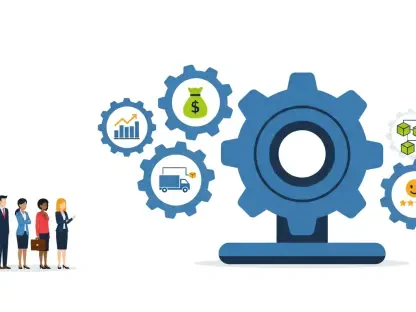I’m thrilled to sit down with Vijay Raina, a renowned expert in enterprise SaaS technology and software design. With his deep expertise in crafting innovative solutions and providing thought leadership in software architecture, Vijay is the perfect person to dive into the transformative role of AI agents in the financial sector. Today, we’ll explore how these intelligent systems are revolutionizing traditional auditing practices, enhancing operational scalability, and working alongside humans to achieve better outcomes. We’ll also touch on the integration of AI with other automation tools, the importance of trust and governance, and the future potential of these technologies in finance.
How are AI agents reshaping the landscape of financial operations, especially compared to traditional methods like manual audits?
AI agents are fundamentally changing the game in financial operations by shifting from labor-intensive, manual spot checks to comprehensive, full-population audits. Unlike traditional methods where only a small sample of data is reviewed due to time and resource constraints, AI agents can analyze every single transaction, invoice, or contract item at scale. They bring speed and precision, identifying patterns and discrepancies that humans might miss. This isn’t just about replacing a process; it’s about enabling a level of oversight and accuracy that was previously unimaginable.
What unique capabilities do AI agents bring to the table that allow them to focus on outcomes rather than just task completion?
AI agents go beyond rote automation by incorporating reasoning and decision-making capabilities. They can compare data against projections, contracts, or historical trends, and then suggest actionable steps based on their analysis. For instance, in financial operations, they don’t just flag a mismatch in billing—they contextualize it and propose a resolution. This outcome-first approach means they’re not just executing predefined scripts; they’re working toward a specific goal, like ensuring compliance or optimizing revenue, which adds immense value to the process.
Can you walk us through how AI agents enable full-population audits and why this is a significant leap from the old spot-check approach?
Full-population audits mean examining every data point—every invoice, every transaction—rather than just a random sample, which was the norm with spot checks. AI agents make this possible through their ability to process vast amounts of data quickly and accurately. They use machine learning to understand complex patterns and exceptions, ensuring nothing slips through the cracks. This is a huge leap because spot checks often missed critical issues simply due to their limited scope. With AI, we’re achieving a level of assurance and transparency that builds stronger trust in financial systems.
In practical terms, how have AI agents made it possible to review detailed data, like every ERP invoice item for clients, which was once considered impossible?
Before AI agents, reviewing every ERP invoice item was a pipe dream due to the sheer volume of data and the manual effort required. Imagine a team trying to manually cross-check thousands of line items against contracts or forecasts—it would take months. AI agents automate this by pulling in data, reconciling it against predefined rules or projections, and flagging anomalies in real time. They handle the heavy lifting, allowing teams to focus on decision-making rather than data crunching. This scalability transforms what was once an unfeasible task into a standard operating procedure.
How do AI agents integrate with robotic process automation (RPA) to enhance financial workflows?
AI agents and RPA are complementary tools in financial workflows. RPA is fantastic for repetitive, rules-based tasks like extracting data from contracts or inputting information into systems. AI agents build on that by adding a layer of intelligence—they analyze the extracted data, reconcile it with other sources like billing records, and even recommend next steps. Together, they create a seamless process where bots handle the predictable grunt work, and AI agents tackle the complex, decision-oriented challenges, ultimately driving efficiency and accuracy.
Can you elaborate on how AI agents augment human teams rather than replace them in financial operations?
AI agents are not about replacing people; they’re about empowering them. For example, in financial operations, teams often struggle with scale—there’s just too much data to handle manually. AI agents step in to process and analyze that data, flagging issues or opportunities for humans to review. This augmentation means staff can focus on strategic decisions, like negotiating better contract terms or addressing critical discrepancies, rather than getting bogged down in repetitive tasks. It’s a partnership that enhances productivity and job satisfaction.
What steps are crucial to building trust in AI agents, especially when they start recommending actions in sensitive areas like billing?
Building trust in AI agents starts with transparency and a phased approach. Initially, it’s important to deploy simpler automation tools like bots for predictable tasks, where errors are consistent and easier to fix. Once that foundation is stable, AI agents can be introduced with clear guardrails—humans must always stay in the loop to approve recommendations. Additionally, rigorous testing and validation of the AI’s decision-making logic are essential. By starting small, monitoring outcomes, and ensuring accountability, we can gradually build confidence in their ability to handle sensitive areas like billing.
How do governance and data privacy considerations come into play when deploying AI agents in financial systems?
Governance and data privacy are non-negotiable when deploying AI agents in finance. Before these systems touch sensitive data like billing or contracts, we need to classify what information is private or restricted and ensure it’s protected. This often involves privacy impact assessments to identify risks and set strict boundaries on what AI can access, especially when using large language models. Legal and compliance teams must be involved from the get-go to align on protocols, ensuring no data leaks occur. It’s a meticulous process, but it’s critical to maintaining trust and regulatory compliance.
What is your forecast for the future of AI agents in the financial sector over the next decade?
I believe AI agents will become even more integral to the financial sector in the next decade, evolving from supportive tools to strategic partners. We’ll see them handling increasingly complex tasks, like predictive analytics for revenue forecasting or real-time fraud detection with minimal human oversight. As trust and governance frameworks mature, adoption will accelerate, and we’ll likely see AI agents integrated into every layer of financial operations—from auditing to customer service. The focus will shift toward creating seamless, intelligent systems that not only solve problems but anticipate them, driving unprecedented efficiency and innovation.









